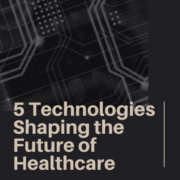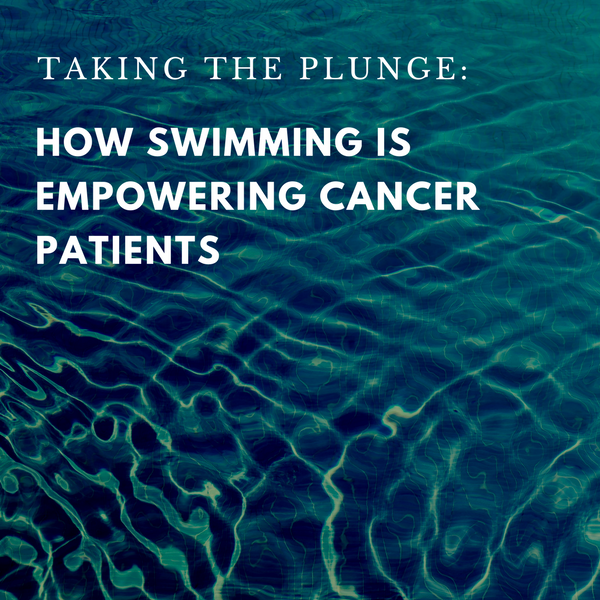5 Technologies Shaping the Future of Healthcare
From implants to self-diagnosis, innovation is growing in the medical industry, and can soon transform healthcare all together. Although technology has already evolved since the development of the microscope back in the 17th century, the health industry is still welcoming more advances to medical and surgical tools, as well as new ways to make effective medicines and vaccines.
In this article, we’ll take a look at the five ways that technology is pushing the medical industry to another level, and shaping the future of healthcare.
1. 3D-Printed Prosthetics
“Prosthetics are one of the most requested products in the medical industry, especially with amputee patients,” says Michael Keener, a business writer at Boom Essays and Academized. “And with 3D printing, it’s now easier to create prosthetic limbs, and make these products more accessible to people worldwide. Ever since the success of the 3D-printed mini heart, now 3D printers are a must-have.”
2. Biosensing Contact Lens
Recently introduced by UNIST’s team of researchers, biosensing contact lens will be able to detect glucose levels in diabetic patients, whenever there are tears in the eye. Having built-in transparent electronics, the lens, fortunately, won’t bother people who wear them. Sounds amazing, right?
And although the lenses aren’t in the market yet, UNIST is hopeful that they’ll soon be available in the near future.
3. Virtual Reality (VR)
VR is no longer reserved for video games. In fact, both patients and doctors can use VR to see what’s going on – whether surgeons are using it for noninvasive procedures, or patients want a virtual escape while they’re recovering from surgery in a hospital bed.
In addition, VR software like Osso VR and ImmersiveTouch help future surgeons train for the real deal, and lets experienced surgeons and physicians perfect their operations and methods. According to a recent study from Harvard Business Review, VR-trained surgeons did around 230% better in their overall performance – faster and more accurate in performing surgeries – than traditionally-trained surgeons.
VR also makes surgery and post-operation less painful for patients. With VR being as noninvasive as possible, patients suffering from things like gastrointestinal, cardiac, and neurological problems find them less painful when using VR to visualize soothing images and scenarios to distract them from what’s going on. Even women in labor can use VR to distract them from labor pains. With VR, the hospital experience is less stressful for patients.
4. Wearable Trackers And Sensors
With wearable trackers like Fitbit, it has never been easier for people to track their steps and heart rate. But pretty soon, these types of trackers and sensors will be able to detect one’s health status, so that people can take better control of their lives. Whether you’re looking to manage your weight, have lower stress levels, check on your body cognitively, or find a good level to be fit and active, wearable trackers and sensors will soon be able to do those things.
Here are some of the technological advances to date:
- Fitbit Ionic – Lets you monitor your sleep, and even tracks your workout.
- Polar H10 – Helps you find the best exercises for you, and fine-tune your current practices. (Wear this with the Fitbit Ionic, if you desire.)
- The Muse Headband – Helps you focus on the major things that make your meditation session successful.
Now more than ever, it’s easier for people to track their health, and get a better hold of what they would need to do to stay healthy and active.
5. Nanotech
“Nanomedicine will soon be a reality, if not now,” says Hollie Kelly, a project manager at Bestbritishessays and Academ advisor. “People are already seeing nanoparticles and nanodevices as our drug delivery systems, tiny surgeons, and cancer treatment tools.”
For example, there is already talk about smart pills like the PillCam, which is a noninvasive, electronic pill that can relay diagnostic information about the patient and or release necessary medication via smartphone. The medical industry is hoping that these smart pills can take biopsy samples for further analysis, or take the place of traditional, invasive surgeries.
Conclusion
With technology already changing our world at a rapid pace, healthcare will surely benefit from innovations from technological advances. Although these technological advances may not show up overnight, you can rest assured that doctors, physicians, surgeons, and developers are working towards these solutions, and promising a brighter future in healthcare.
Molly Crockett writes for Ukservicesreviews.com and Big Assignments. She also writes articles about writing and editing on Best Coursework Services. As a marketing writer, she shares her unique lifestyle tips and personal development advice with her audience.










